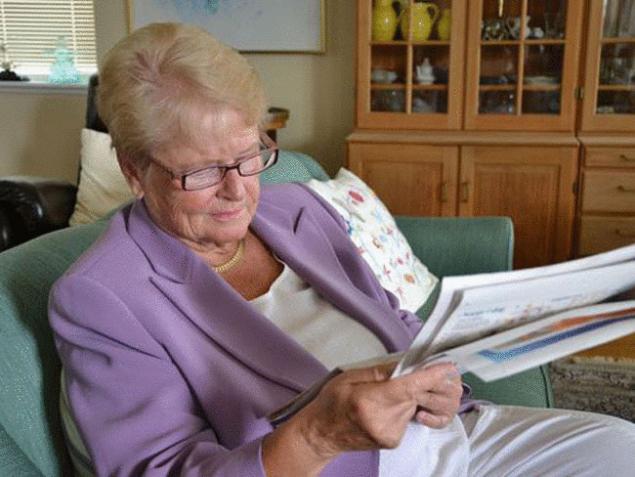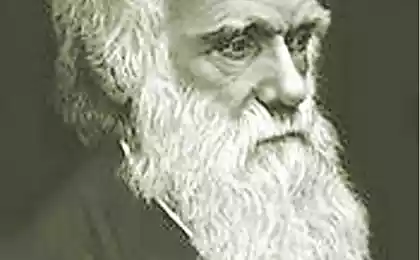666
The first Chinese Nobel prize awarded for the environment
The first Chinese winner of the international prize "tan" was a Norwegian physician, environmentalist, and politician Gro Harlem Bruntland.
18 Jun 2014 it was announced that the first prize "tan" in the category "Sustainable development" was awarded to Dr. Gro Harlem Bruntland from Norway with an official statement: "for innovation, leadership and implementation of the concept of sustainable development, which presented the world community with scientific and technical problems to achieve a better balance of economic development, environmental integrity and social equity in the interest of all mankind".

Founded by one of the richest people in Taiwan Dr. Samuel Yin in December 2012, the international prize "tan" designed to reward scholars conducting revolutionary research in the four main areas: sustainable development, biopharmaceutical science, Sinology and law. These areas are selected Yin in his words because, despite their importance to humanity, they are not required for the awarding of the Nobel prize. The winner of the prize can become a citizen of any country. Selection of winners is handled by a special Committee of national Taiwan Academy SINICA. The international Committee for each of the award categories will include about 24 of the world's leading experts.
The prize was named after the Emperor of the Tang dynasty, who ruled in China from 618 to 907 years. This time is considered the period of greatest prosperity of the country.
The prize is awarded every two years, with the award in each category awards 40 million Taiwan dollars. ($1.34 million) and research grant in the amount of 10 million Taiwan dollars ($333 000). Fund Prize, the Tang is 3 billion Taiwan dollars ($101 million).
Dr. GRU Harlem of Bruntland was born in Berum, Norway) in April 1939. Under the influence of his father, Dr. Bruntland received his medical education at the University of Oslo (graduated in 1963) and then a master's degree in public health from Harvard University in 1965. He worked as a doctor. While studying at Harvard, she came to the importance of the environment and came to understand the close relationship between human health and the environment, though environmental issues have not yet been widely included in the political agenda of the time. In 1975 she became Minister of environmental protection and is widely recognized for solving various environmental problems. In 1981, Brundtland became not only the first woman but also the youngest Prime Minister of Norway.
In 1983 the UN Secretary-General Javier Perez de Cuellar invited GRU Haarlem Bruntland to establish and lead an International UN Commission on environment and development (WCED), which went down in history as "the Board of Bruntland". Under her leadership, the Commission published in 1987, the landmark report entitled "Our common future", which is the culmination of a broad international effort involving hundreds of experts and stakeholders. It is in this report proposed the term "Sustainable development", defined as follows:
"Sustainable development is development that meets the needs of the present generation without compromising the ability of future generations to meet their own needs".
The report presents scientific and technical problems to achieve a better balance of economic development, environmental integrity and social equity in the interest of all humanity.
A direct result of the report of Bruntland became the UN Conference on environment and development (UNCED), also known as the "Earth Summit" held in 1992 in Rio de Janeiro, Brazil. Bruntland and members of the Commission played a key role at the summit. The summit produced a comprehensive plan for the UN "agenda for the XXI century", which defined action to be taken at global, national and local level to ensure that life on Earth became more stable. Among other decisions, the summit initiated the most important international Treaty in the field of climate change – framework UN Convention on climate change, which led to the Kyoto Protocol and the biodiversity Convention. The report of Brundtland and the Earth Summit continue to influence all subsequent UN conferences.
During his tenure as Director General of the world health organization (1998-2003) has helped create sustainable and equitable health systems around the world. Under her leadership, who fought effectively against global pandemics such as AIDS, malaria, and SARS. It was also able to provide support for the first agreement on a major public health problem – tobacco control: the who framework Convention on tobacco control (2003). In 2003, she was recognized by Scientific American magazine "political leader of the year".
In 2007, Brundtland was appointed Special UN envoy on climate change to assist the Secretary-General of the UN in promoting international negotiations between governments and organizations. In 2010, she was a member of the high-level panel on global sustainability at the UN Secretary General. This group presented a report "Sustainable planet viable people: the future we choose", dedicated to the eradication of poverty, reducing inequality, ensuring inclusive growth, more sustainable production and consumption, while combating climate change and respecting a range of other rules for the protection of the planet." He inspired the adoption of the Declaration "the Future we want," signed by the heads of 192 countries at the UN Conference on sustainable development "Rio +20" (2012)
Dr. GRU Harlem of Bruntland called the "godmother of sustainable development". She is a recognized world leader in promoting sustainable development for the benefit of humanity for over 30 years.
On the official website of the award.
Source: nkj.ru
18 Jun 2014 it was announced that the first prize "tan" in the category "Sustainable development" was awarded to Dr. Gro Harlem Bruntland from Norway with an official statement: "for innovation, leadership and implementation of the concept of sustainable development, which presented the world community with scientific and technical problems to achieve a better balance of economic development, environmental integrity and social equity in the interest of all mankind".

Founded by one of the richest people in Taiwan Dr. Samuel Yin in December 2012, the international prize "tan" designed to reward scholars conducting revolutionary research in the four main areas: sustainable development, biopharmaceutical science, Sinology and law. These areas are selected Yin in his words because, despite their importance to humanity, they are not required for the awarding of the Nobel prize. The winner of the prize can become a citizen of any country. Selection of winners is handled by a special Committee of national Taiwan Academy SINICA. The international Committee for each of the award categories will include about 24 of the world's leading experts.
The prize was named after the Emperor of the Tang dynasty, who ruled in China from 618 to 907 years. This time is considered the period of greatest prosperity of the country.
The prize is awarded every two years, with the award in each category awards 40 million Taiwan dollars. ($1.34 million) and research grant in the amount of 10 million Taiwan dollars ($333 000). Fund Prize, the Tang is 3 billion Taiwan dollars ($101 million).
Dr. GRU Harlem of Bruntland was born in Berum, Norway) in April 1939. Under the influence of his father, Dr. Bruntland received his medical education at the University of Oslo (graduated in 1963) and then a master's degree in public health from Harvard University in 1965. He worked as a doctor. While studying at Harvard, she came to the importance of the environment and came to understand the close relationship between human health and the environment, though environmental issues have not yet been widely included in the political agenda of the time. In 1975 she became Minister of environmental protection and is widely recognized for solving various environmental problems. In 1981, Brundtland became not only the first woman but also the youngest Prime Minister of Norway.
In 1983 the UN Secretary-General Javier Perez de Cuellar invited GRU Haarlem Bruntland to establish and lead an International UN Commission on environment and development (WCED), which went down in history as "the Board of Bruntland". Under her leadership, the Commission published in 1987, the landmark report entitled "Our common future", which is the culmination of a broad international effort involving hundreds of experts and stakeholders. It is in this report proposed the term "Sustainable development", defined as follows:
"Sustainable development is development that meets the needs of the present generation without compromising the ability of future generations to meet their own needs".
The report presents scientific and technical problems to achieve a better balance of economic development, environmental integrity and social equity in the interest of all humanity.
A direct result of the report of Bruntland became the UN Conference on environment and development (UNCED), also known as the "Earth Summit" held in 1992 in Rio de Janeiro, Brazil. Bruntland and members of the Commission played a key role at the summit. The summit produced a comprehensive plan for the UN "agenda for the XXI century", which defined action to be taken at global, national and local level to ensure that life on Earth became more stable. Among other decisions, the summit initiated the most important international Treaty in the field of climate change – framework UN Convention on climate change, which led to the Kyoto Protocol and the biodiversity Convention. The report of Brundtland and the Earth Summit continue to influence all subsequent UN conferences.
During his tenure as Director General of the world health organization (1998-2003) has helped create sustainable and equitable health systems around the world. Under her leadership, who fought effectively against global pandemics such as AIDS, malaria, and SARS. It was also able to provide support for the first agreement on a major public health problem – tobacco control: the who framework Convention on tobacco control (2003). In 2003, she was recognized by Scientific American magazine "political leader of the year".
In 2007, Brundtland was appointed Special UN envoy on climate change to assist the Secretary-General of the UN in promoting international negotiations between governments and organizations. In 2010, she was a member of the high-level panel on global sustainability at the UN Secretary General. This group presented a report "Sustainable planet viable people: the future we choose", dedicated to the eradication of poverty, reducing inequality, ensuring inclusive growth, more sustainable production and consumption, while combating climate change and respecting a range of other rules for the protection of the planet." He inspired the adoption of the Declaration "the Future we want," signed by the heads of 192 countries at the UN Conference on sustainable development "Rio +20" (2012)
Dr. GRU Harlem of Bruntland called the "godmother of sustainable development". She is a recognized world leader in promoting sustainable development for the benefit of humanity for over 30 years.
On the official website of the award.
Source: nkj.ru
8 facts about the benefits of strawberries that you did not know
Green pharmacy - celery all diseases






















